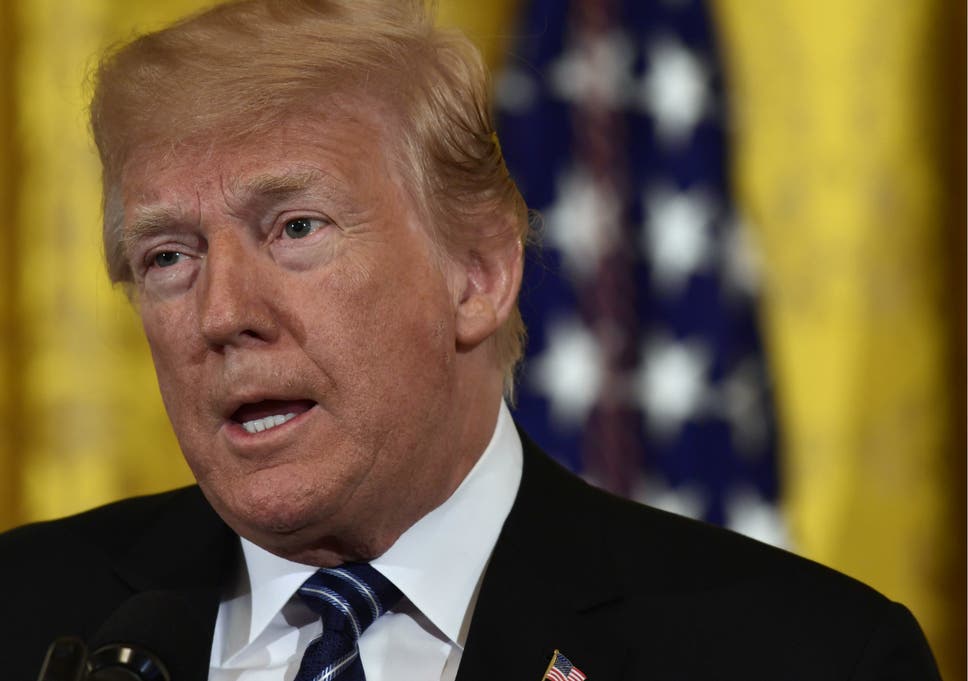 |
| US President Donald Trump |
"China has agreed to buy massive amounts of ADDITIONAL Farm/Agricultural Products - would be one of the best things to happen to our farmers in many years!" Mr Trump tweeted Monday, with no additional explanation a day after Treasury Secretary Steve Mnuchin said that trade tensions between the two had been temporarily eased.
Mr Mnuchin has said to expect a 35 to 45 per cent increase in 2018 alone. The predictions come after Beijing agreed to "substantially reduce" the US trade deficit with China and Mr Trump set out on a mission to make another international deal less “unfair” and more “reciprocal” to the US. "Fair Trade, plus, with China will happen!" Mr Trump tweeted.
Farm sales are a key political area for Republicans and Mr Trump, many of whose supporters are in rural areas and have expressed fear that foreign competitors, particularly China, could hurt American exports business.
The US and China had a deal worth hundreds of billions of dollars for China to buy US soybeans, particularly those produced in Iowa given Chinese President Xi Jinping’s ties to the state. It was the first place he had visited as a young government official in the 1980s.
However, late last week it was announced that nearly a million tonnes of soybeans sales had been cancelled. The US Department of Agriculture did not disclose which parties cancelled the purchases, but it could have been China due to the last minute negotiations and Mr Trump’s recent tweet to avert the cancellation. The agency has not responded to a request for comment on whether the cancelled sales are back on.
Mr Mnuchin also forecast a doubling in sales of US energy products to China - set to increase from $50bn to $60bn in the next three to five years.
The Trump administration has said it wants to reduce the deficit by $200bn, but China has not agreed to a specific amount.
Trade analysts were not surprised that China refused to agree to a numerical target for cutting the trade gap, but they said the talks probably were more successful in easing trade tensions.
Economist Eswar Prasad told the Associated Press that the Trump administration’s eagerness in these negotiations may be related to the upcoming summit between Mr Trump and North Korean leader Kim Jong-un, who are set to meet for the for the first time on 12 June in Singapore.
China has deep connections with North Korea – Pyongyang has long relied on it and Russia for basic economic needs along with a small number of other allies. However, China’s recent enforcement of strict United Nations sanctions on seafood, textiles, foreign exchange services and fuel are believed to have hurt Pyongyang a great deal.
Despite that, Mr Kim and Mr Xi have met several times and Mr Xi has done his part to try and convince the North Koreans from cancelling the US talks.
China also recently said it "greatly appreciates the positive US position” on helping his largest telecommunications company, ZTE, to recover from being shut out of the US market.
Mr Trump tweeted the US Commerce Department has been “instructed to get it done” to save jobs at the company, despite it admitting it broke US sanctions laws by selling products with American components to North Korea and Iran.
Wilbur Ross, US Commerce Secretary, said at the time that the company’s “egregious behaviour cannot be ignored” and again noted today that the company did violate US sanctions. In light of the president’s tweet, Mr Ross said that the sanctions on ZTE are an “enforcement action, separate from trade”.
However, he noted that his agency will “explore promptly alternative remedies” for ZTE to possibly re-enter the US market.









No comments:
Post a Comment